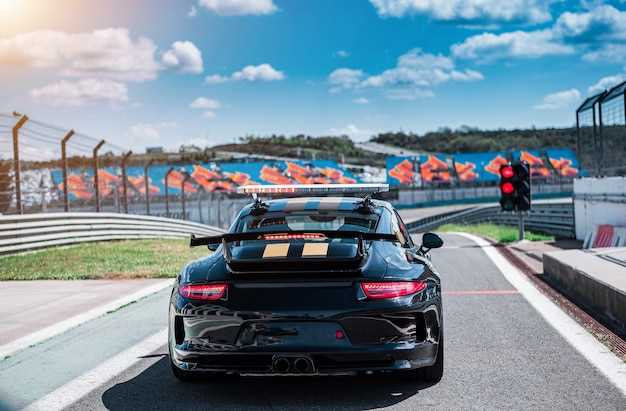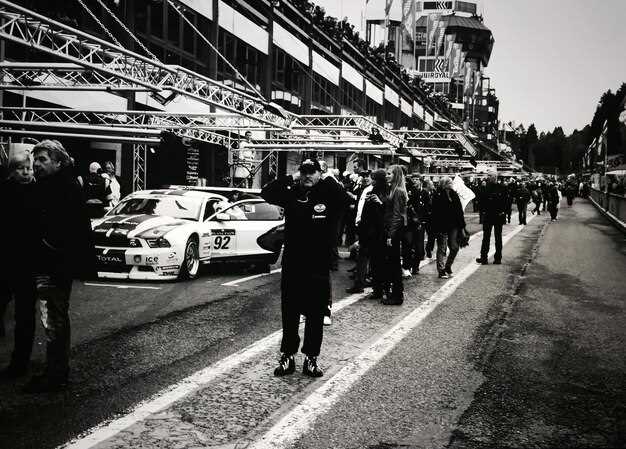Milestones in VW’s Touring Car Success

The world of motorsport is rich with stories of triumph, and few brands have etched their success in the narrative of the Touring Car Championship like Volkswagen. With a relentless pursuit of excellence, VW has not only participated but has dominated several seasons, showcasing the prowess of its cars on the racetrack.
Over the years, Volkswagen has achieved significant milestones that underscore its commitment to innovation and performance. The brand’s focus on engineering precision and cutting-edge technology has enabled its racing vehicles to excel in both speed and handling, making them formidable competitors on the track. These attributes are evident in their numerous podium finishes and championship titles, which have solidified VW’s reputation as a leader in automotive excellence.
Moreover, Volkswagen’s success in the Touring Car Championship can be attributed to a well-orchestrated strategy that combines skilled drivers, expert engineering teams, and extensive research and development. This holistic approach has not only yielded impressive results but has also enhanced the overall image of VW as synonymous with high-performance cars that push the limits of what’s possible in racing.
Dominance in Race Wins: Analyzing VW’s Winning Strategies

Volkswagen (VW) has established a formidable presence in the Touring Car Championship, achieving remarkable success through a combination of innovative engineering, strategic planning, and effective team collaboration. This section delves into the key strategies that have propelled VW to the forefront of race wins.
One of the critical elements of VW’s dominance is its commitment to technological advancement. The brand invests significantly in research and development, enabling the creation of high-performance cars that excel on the track. These vehicles are equipped with cutting-edge features, including advanced aerodynamics, powerful engines, and superior handling dynamics, all essential for securing victories in competitive racing environments.
Moreover, VW has implemented a comprehensive data analysis approach to refine its racing strategies. By utilizing telemetry data and performance analytics, the team can assess vehicle performance in real-time, make data-driven decisions during races, and optimize setups for various circuits. This precision in tuning allows VW cars to adapt quickly to changing race conditions, giving them a competitive edge over opponents.
Team synergy and communication also play a vital role in VW’s racing success. The collaboration between drivers, engineers, and strategic planners ensures that everyone is aligned with the overarching goals of each race. Continuous feedback loops enable quick adjustments to tactics and car setups, enhancing performance on the track. Each team member’s expertise is harnessed to optimize every aspect of the racing experience, leading to consistent victories.
Finally, VW’s robust marketing and brand presence contribute to its success in the Touring Car Championship. The brand’s dedication to excellence resonates with fans and fosters a loyal following, creating an added layer of motivation for teams to perform at their best. This support translates into increased morale and a unified drive towards achieving race wins.
In summary, VW’s dominance in race wins can be attributed to a strategic blend of innovative technology, meticulous data analysis, effective team collaboration, and strong brand identity. These elements collectively enhance the performance of VW cars in the Touring Car Championship, solidifying their status as a formidable competitor.
Technological Innovations: How VW Transformed Touring Car Performance

Volkswagen (VW) has been at the forefront of technological advancements in the touring car championship, particularly through its innovative engineering and design strategies. The integration of cutting-edge technologies has significantly enhanced the performance of VW cars in competitive racing scenarios.
One of the most notable innovations introduced by VW is the implementation of advanced aerodynamics in their touring cars. The design of aerodynamic body kits and rear wings has streamlined airflow, reducing drag and increasing downforce. This allows VW cars to maintain better stability and grip at high speeds, crucial for success in touring competitions.
In addition to aerodynamics, VW has leveraged lightweight materials in their vehicle construction. The use of carbon fiber and aluminum not only reduces the overall weight of the cars but also enhances their structural integrity. This weight reduction is pivotal in improving acceleration and handling, allowing VW touring cars to outpace competitors on the track.
Moreover, VW has pioneered engine technology by incorporating turbocharged engines into their touring car lineup. These high-performance engines provide a superior power-to-weight ratio, allowing for rapid acceleration and improved fuel efficiency. Enhanced engine management systems enable drivers to extract maximum performance during races, adapting to various track conditions seamlessly.
Another significant advancement is the deployment of sophisticated telemetry systems in VW touring cars. These systems provide real-time data on vehicle performance and driver behavior, enabling teams to make informed adjustments during races. By analyzing data such as tire pressure, temperature, and fuel consumption, VW has optimized pit strategies and vehicle settings, contributing to their success in the championship.
VW’s commitment to innovation is further exemplified by their focus on sustainability. The introduction of hybrid technologies in some touring car models demonstrates VW’s dedication to reducing environmental impact while maintaining competitive performance. This forward-thinking approach not only enhances racing capabilities but also resonates with the growing demand for eco-friendly solutions in motorsport.
In conclusion, VW’s transformative innovations in technology have significantly enhanced the performance of their touring cars. By prioritizing aerodynamics, lightweight materials, advanced engine technology, real-time data analytics, and sustainability, VW continues to set benchmarks in the touring car championship, solidifying its position as a leader in automotive performance engineering.
Driver Development: The Role of Talent in VW’s Championship Success
In the competitive world of touring car championships, the significance of driver development cannot be overstated. Volkswagen (VW) has consistently recognized that the raw talent of its drivers is a critical component driving the brand’s success on the race track. Over the years, VW has invested substantially in nurturing and honing the skills of its racing professionals, enabling them to perform at their best in high-pressure environments.
One of the key aspects of player development is the structured training programs that VW provides for its drivers. These programs encompass various elements, from physical fitness to mental fortitude and strategic race planning. By marrying physical conditioning with the psychological aspects of racing, VW ensures that its drivers are not only fit to handle the demanding nature of touring car races but are also prepared to make quick, tactical decisions on the fly.
Moreover, VW’s commitment to talent is evident through its involvement in grassroots motorsport initiatives. By identifying promising drivers at a young age, VW fosters a pipeline of future talent that can be molded into championship contenders. This proactive approach not only strengthens VW’s position in touring car competitions but also enriches the motorsport community by providing opportunities for aspiring drivers.
Finally, the collaborative environment within the VW racing team plays a crucial role in the development of drivers. The synergy between experienced racers and newcomers creates a rich tapestry of shared knowledge and techniques that enhances overall performance. Insights gained from past championships and real-time feedback during races serve as invaluable learning experiences that shape the evolution of both individual drivers and the team as a whole.



